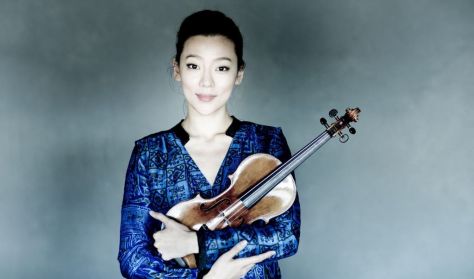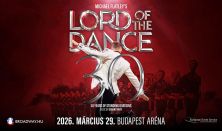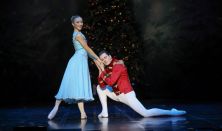Violin soloist Clara-Jumi Kang is a versatile musician who, according to The Strad, caresses when necessary but attacks when needed. "A soloist who, beyond virtuosity, is capable of recreating music in a meaningful and sensitive way, with brilliant colors and expressive intonation", Bachtrack also refers to her contrasts. The conductor will be Lahav Shani, a 35-year-old Israeli. This is not his first time conducting the BFO. "He is an exceptionally talented conductor who leads the orchestra naturally, with exemplary energy and precision", wrote Classic Toulouse.
In the 1960s, Israeli composer Tzvi Avni, now in his ninety-sixth year, turned increasingly towards transnational music rooted in the culture of the whole of Judaism. His work for string orchestra uses a Kodály-like technique to unfold its opening prayer melody, introduced by the viola. The stormy music that follows, with its alternation of melodic beats and rhythmic effects, is more reminiscent of Bartók. Then flageolet-tinted blocks are heard, and the dramatic section returns as a fugue. The opening theme finally closes the work like a husky curtain of sound.
Sibelius's only concerto offers a tireless variety of melodies. "I have wonderful themes for the violin concerto", the composer wrote for the piece he was preparing, which he revised after its premiere in 1904. Sibelius, who had trained to be a violinist, had a thorough knowledge of the instrument, and thus composed one of the most comfortable, yet most challenging solos for the violin in the history of music literature. He combined the virtuoso traditions of the 19th century with his own symphonic style; the dark, yet clear and translucent orchestration of the Violin Concerto reminds many of northern autumn and winter. The first movement, interrupted by a cadenza in the middle, is followed by a slow movement free of sentimentality and a dance finale. It is dedicated to the child prodigy Ferenc Vecsey, who first performed the work at the age of thirteen.
"It was probably my last flicker," Rachmaninoff wrote in 1940, three years before his death. The Symphonic Dances, composed in the United States and partly inspired by homesickness, may indeed be a farewell to life. This can be seen in the quotation from the first symphony in the opening movement of his last symphonic work, the ethereal flight at the end of the waltz movement, or the heroization of the Dies irae in the finale. The three dances written for the Philadelphia Orchestra under the leadership of Jenő Ormándy grew out of a ballet plan that had gone up in smoke. "Noon, Twilight and Midnight" were the titles of the movements that were later deleted. In the ominous, nervously pulsating first dance, we suddenly hear an alto saxophone. The menacing mood, which continues in the waltz, is then echoed in soft, leaping motifs to other worlds. The finale, which quotes Russian Orthodox melodies and an excerpt from the composer's own Vespers, ends with: “Thank you, Lord!”
Tzvi Avni: Prayer for String Orchestra
Jean Sibelius: Violin Concerto in D minor, Op. 47
Sergei Rachmaninoff: Symphonic Dances, Op. 45
Clara-Jumi Kang, violin
Conductor: Lahav Shani








